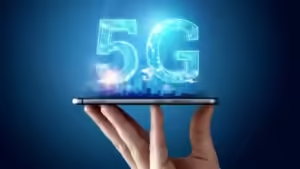Verizon consistently ranks as the provider with the best cell phone coverage. Performance and reliability studies show they lead in most regions.
Coverage is a paramount factor in choosing a suitable cell phone carrier. Verizon outstrips its competitors, providing extensive service across the United States. Customers prioritize seamless connectivity, whether in densely packed cities or rural areas, making network reach a critical aspect of their decision.
Various independent research and consumer reports have underscored Verizon’s top position in network performance, including data speed and call quality. It makes them an excellent choice for individuals needing robust service without worrying about dropped calls or sluggish data. As technology evolves, Verizon continues to invest in infrastructure, aiming to maintain its coverage advantage, offering consumers a reliable choice for their mobile communication needs.

Comparing Cell Phone Coverage
Cell phone coverage is a critical factor for users choosing a provider. Different companies have coverage maps you can check. These maps show where you can expect good signal strength. Verizon, AT&T, T-Mobile, and Sprint lead in coverage areas. Users often share their experiences in customer satisfaction surveys.
To pick the best coverage, review each Company’s map. Maps are on their websites. They show signal quality in cities and rural areas. Remember, mountains and buildings can block signals. People vote for the best coverage in surveys. Many say Verizon is top. But the best for you depends on where you live.
- Verizon often ranks highest in coverage.
- ATT offers strong city signals.
- T-Mobile is good for city dwellers, too.
- Sprint has less reach but can be cost-effective.
Factors Affecting Cell Phone Coverage
The geographical area covered by the network of a service provider can vary widely due to network infrastructure. A good network means you can talk and surf easily. Companies build towers and antennas to send signals to your phone. More towers often represent better coverage. But not all places have the same number of towers.
Terrain and geography also play a huge role. Mountains, valleys, and buildings can block signals. Open areas tend to have better signal strength. Your location can affect how well your phone works. Different carriers may work better in certain places.
Top Cell Phone Carriers
Choosing a suitable cell phone carrier is vital for seamless connectivity. ATT is among the top choices for exceptional coverage and high-speed data services. Users across the nation appreciate its reliable network that rarely disappoints in urban and rural regions.
The Verizon network also shines with its vast coverage. It assures customers of solid signal strength and fast data, making it a go-to for many. Notably, Verizon often ranks at the top for network reliability.
T-Mobile’s network boasts impressive 4G LTE speeds and rapidly expanding 5G coverage. Known for competitive pricing, they’re the carrier of choice for cost-conscious consumers.
Sprint has merged with T-Mobile, creating a more extensive network. This union promises Sprint users access to T-Mobile’s growing 5G service.

Improving Cell Phone Coverage
Another way to improve reception is through Wi-Fi calling. This feature allows calls over a Wi-Fi network. It is perfect for areas with inadequate cellular signals. Most smartphones support this feature. To use Wi-Fi calling, connect to a Wi-Fi network. Then, turn the Wi-Fi calling option on in your phone settings. Your calls and messages will use Wi-Fi, not a cell tower.
Future Of mobile phone signal
The future of mobile phone signals is a thrilling topic. The rollout of 5G networks is central to this evolution. Major cell phone carriers are working hard to make 5G familiar. This new technology promises super-fast speeds and more reliable service. Soon, phones will connect almost instantly, and downloads will be lightning-quick.
Satellite technology is also elevating coverage. Some companies are launching satellites to provide coverage everywhere. It means even remote areas will get strong signals. Imagine making calls or browsing the web from a high mountain or a lonely desert!
5G Advantages Satellite Benefits
– Faster download/upload – Worldwide reach
– Lower Latency – No dependency on ground infrastructure
– Improved connection density – Helps in emergencies
Frequently Asked Questions Of Who Has The Best Cell Phone Coverage
Who Offers The Top Cell Phone Coverage?
The leading providers of cell phone coverage in the United States are Verizon, AT&T, and T-Mobile, with Verizon often recognized for its extensive network.
Does 5g Improve Network Reliability?
5G technology offers increased speeds and network reliability, but its availability varies by location and carrier.
How To Compare Cell Phone Coverage?
To compare cell phone coverage, you can use various tools such as coverage maps and online comparison sites. check carriers’ coverage maps, read consumer reviews, and consider independent network performance studies.
Can Weather Affect Cell Phone Coverage?
Weather conditions like storms or heavy precipitation can sometimes impact cell phone signal strength and coverage quality.
Conclusion
Selecting the best cell phone coverage depends on your specific needs and location. Carefully review network reliability, data speeds, and customer service reputations. Remember, what works for one may not suit another. Do your research, and you’ll find the provider that keeps you connected seamlessly.
Choose wisely for uninterrupted communication.


1 thought on “Who Has the Best Cell Phone Coverage: the Top Provider!”